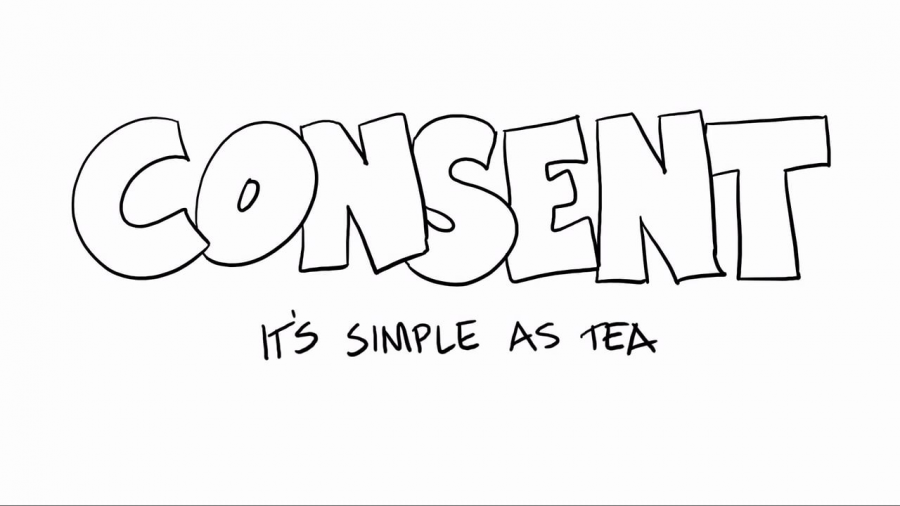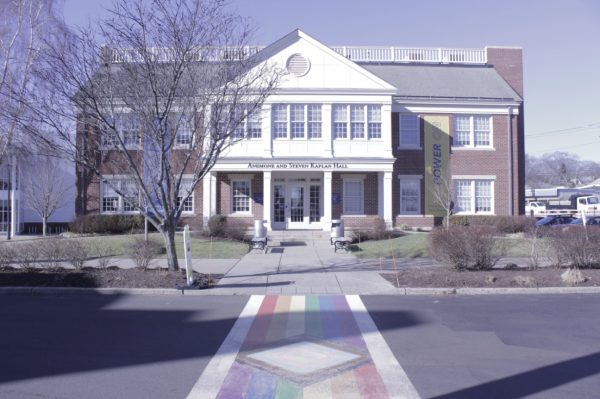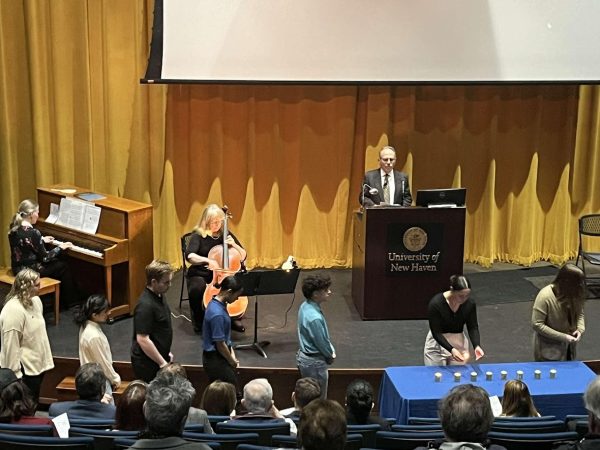W.R.I.T.E. Poetry Hosts a Discussion on Sexual Consent
W.R.I.T.E. Poetry hosted The Big NO on Wednesday (April 12) to education students on the importance of communication in relationships regarding how seriously both partners take them, and what to do when they want to take things further.
The Big NO was a discussion about consent regarding sexual boundaries in relationships. It looked into the views of consent and what it means to agree to engage in any kind of activity involving it. The discussion was a safe and open space to talk about the issue, along with gender norms and social beliefs on consent.
President of W.R.I.T.E., Sierrah Smalls, showed the students a video titled “Tea and Consent,” to kick off the night. The video was a simple parallel to agreeing to have sex with a partner, only with using tea instead of directly talking about sex. Whether a person is passed out, politely refuses, or is unsure about drinking tea, the correct solution is to not make/force the partner to drink tea. The video ends with: “If you are able to understand when people don’t want tea, then how hard is it when people don’t want to have sex?”
The conversation then transitioned into the definition of consent. Some students saw it as simply being comfortable and agreeing to have sex, others pointed out that consent is important for any situation between two partners, be it sexual, romantic, or even platonic. The students in attendance all agreed that it must be an absolutely clear agreement between both parties, and both must respect each other’s wishes.
The discussion ventured into gender roles and how societal beliefs have an impact on the beliefs of consent. A common misconception in heterosexual relationships is that only women need to give consent to their male partner, but students agreed that male partners deserve an opportunity to give or deny consent just as much as women. The portrayal of men as sexual assaulters, and women as victims in the typical sexual assault scenario was also brought up. The students all came to a consensus that gender should not matter and that consent is everything.
More misconceptions were discussed when it came to LGBT couples and the beliefs of sexuality and desire for sex. Some negative beliefs included that those who are LGBT simply have not found the right heterosexual experience and can be fixed with the right one, as well as the notion that those who are homosexual are much more sexually active and crave sex all the time. Several students spoke out against this notion, explaining that anyone, regardless of sexuality, wants to be respected and doesn’t want to be judged based on stereotypes and misconceptions.
The talk concluded with a major question: how does one let others know that they must take the time to talk with their partner and be clear about their intentions? Smalls explained that sometimes, because of the awkward content, it is a little difficult for some couples to communicate, causing them to dance around the topic or make it sound pleasing to their partner to avoid unpleasantness.
“The best way to do it is to do it with a way you are comfortable with, but get the message through clearly,” said one student.

Sarah is a junior studying Dental Hygiene. She is often writes for Opinions, Student Life, and Entertainment. Sarah has started writing for Charger Bulletin...













